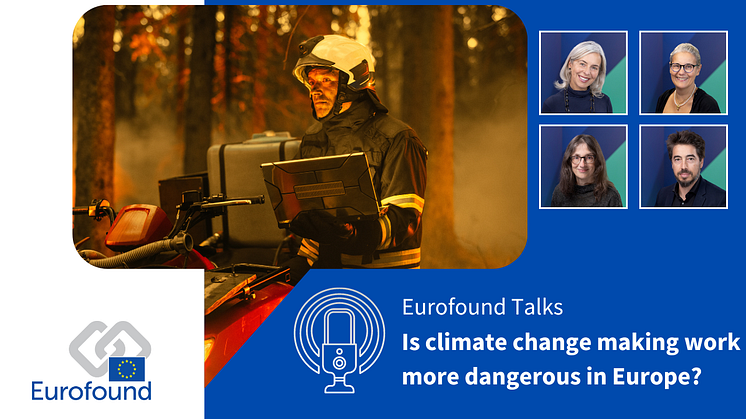
News -
Discord around Europe’s ‘just transition’ hampering progress
The lack of a single agreed definition of ‘just transition’ by the different interest groups participating in the EU Territorial Just Transition Plans (TJTPs) is hampering stakeholder involvement and progress on the issue. While involved stakeholders support the European Green Deal’s objectives and fundamental principle of leaving no-one behind, there is ongoing ambiguity on how the ‘just transition’ should happen.
Eurofound’s new policy brief Creating a new social contract for a just transition: Is partnership working?examines how the actors involved perceive the just transition and identifies partnership practices that work and those that need improvement. Based on eight case studies, the brief emphasises that multi-stakeholder partnerships are essential to ensure that the green transition is not only environmentally sound and economically viable, but also socially just.
National and EU mechanisms have been developed to support the European Green Deal, including the Just Transition Mechanism. Launched in 2020 as part of the Multiannual Financial Framework 2021-2027, the Just Transition Fund subsidises policy interventions aimed at alleviating the socio-economic costs of the green transition in selected regions, dedicating €19.2 billion directly, and mobilising €25.4 billion in investments.
Accessing these funds requires Member States and regions to develop TJTPs setting out projects that specifically address any undesired effects of the green transition through a partnership approach. Eurofound’s research shows that, while stakeholders appreciate the participatory principle of the TJTPs and their governance model, they report that in practice it often took the form of information-sharing rather than partnership.
Social partners concurred that their participation was limited. Civil society organisations, while appreciating the opportunity to provide input, found it difficult get their voices heard. Regional and local authorities valued the ability to contribute but expected they would have a stronger role in the future.
Eurofound’s analysis highlights bureaucratic and institutional obstacles, institutional individualism, and the omission of certain groups or sectors from planning and implementation as barriers to effective partnerships.
Strong partnerships, on the other hand, were associated with cross-departmental cooperation, a well-designed participatory process, a strong coordinating role for public organisations, applying the lessons from past transitions, cooperation between stakeholders, sufficient capacity of regional authorities to coordinate action, and adequate technical assistance.
The brief concludes that strong, bottom-up and people-centred partnerships – as described in the regulation establishing the Just Transition Fund – are fundamental to the success of the TJTPs and that actions should be taken to ensure full, coherent involvement of all relevant stakeholders.
- Download the policy brief: Creating a new social contract for the just transition: Is partnership working?
- Watch the webinar: Is Europe's green transition in jeopardy?



